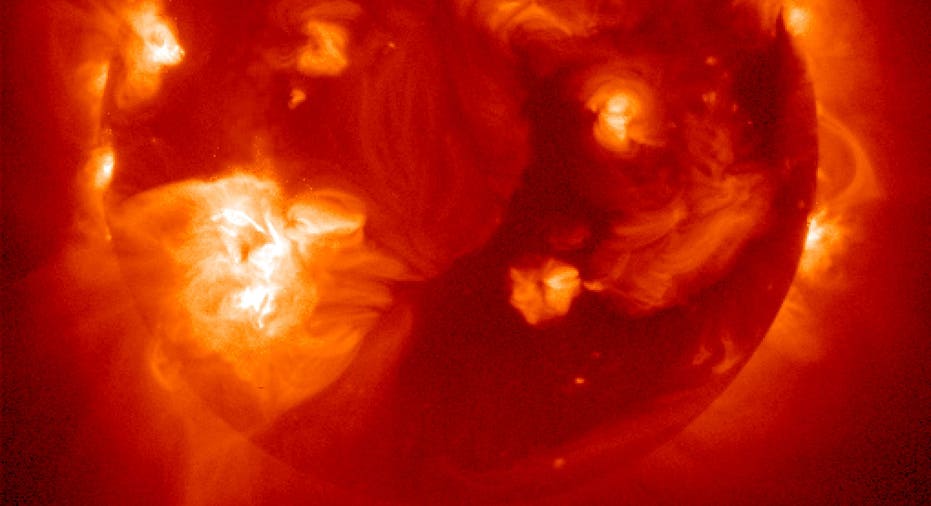Solar Storms May Wreak Havoc on Global Power Grid

An upcoming cycle of stormy solar activity risks causing damage to electrical transformers and threatening vulnerable energy infrastructure around the globe, a report by an insurance group says.
The sun follows a predictable 11 year activity cycle, with the next period of stormy activity expected to begin in 2012-13.
The report by German insurance group Allianz said a high impact solar storm, not easily predicted due to its recorded rarity, could cause blackouts and economic losses of over $1 trillion and that the worst case scenario would be even worse.
"What we're coming into at the moment is the bad (space)weather period," Jim Wild of Britain's Lancaster University, an expert in solar plasma physics, told Reuters.
A large explosion on the surface of the sun could release billions of tonnes of superheated magnetically charged gas at a speed of a million miles per hour, and when that gas hits the earth's magnetic field, it can trigger a big solar storm.
The severity of a potential disruption has made experts at insurance and national security institutions take notice.
"When you start to imagine not having electricity in a sizeable fraction of a country or a continent for weeks or even months ... it's serious business," Wild said.
SMALL LEAD TIME
The difficulty lies in predicting how often serious solar type events occur.
The small lead time given by satellites is also a problem for preventing solar storm damage, as currently no satellite is close enough to the sun to give more than an hour's warning, Wild said.
Updating the satellites to give the earth more preparation time would cost around $1 billion, he added.
Space weather is a relatively new area of study, with sophisticated observations going back only 50 years and lacking an international coordinated tracking system such as that found with normal meteorological weather.
"We have very little on a solar time scale," Wild said.
The most damaging storm in recent memory was a 1989 outage in Quebec, Canada, which affected six million people.
The first scientific recording of a large solar storm was made in 1859 by English astronomer Richard Carrington, who observed a white light explosion on the surface of the sun.
Wild said: "what they didn't know back then was why about two or three days later you could see the northern lights over Cuba and all of the telegraph system was disrupted by geomagnetic activity."
According to the Allianz report, an event on the same scale today would cause extensive damage to electrical infrastructure.



















